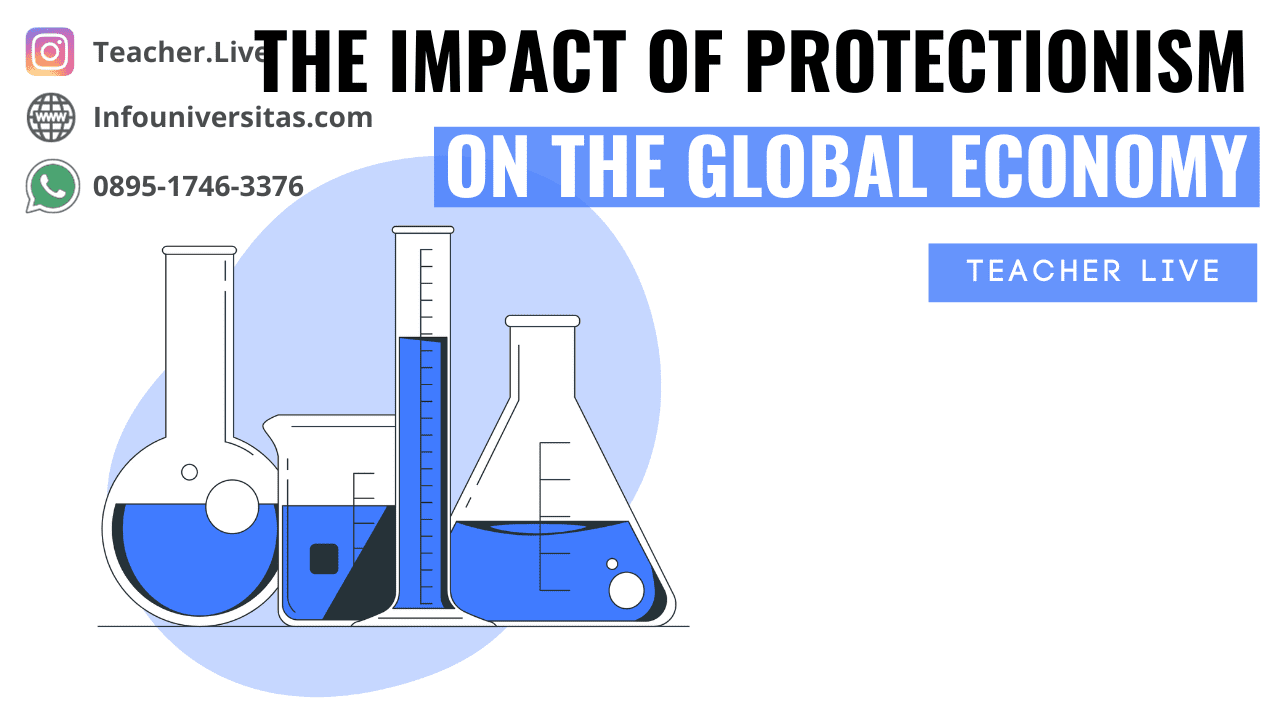The Role of Protectionism in the Global Economy
Infouniversitas.com - Hello, everyone! In the realm of economics "protectionism" often sparks debate among policymakers, economists and business leaders. In this discussion we will explore the aspects of protectionism.
Analyze its implications for the global economy along with its interaction with global trade dynamics. Given the nature of trade it is crucial to comprehend how to strike a balance, between protecting domestic industries and fostering economic growth.
To delve deeper into the topic lets explore how protectionist measures have influenced the landscape of nations and the overall structure of trade.
The Historical Context of Protectionism and Its Evolution
 |
| The Impact of Protectionism on the Global Economy |
Protectionism, which involves restricting competition has played a role, in shaping economies and trade dynamics throughout the 20th century. Following World War II there was a shift towards trade on a global scale with organizations like the World Bank being established to promote international economic collaboration.
However despite this shift protectionist measures continue to be appealing for countries looking to support their industries against rivals. In times protectionism often involves implementing trade barriers such as tariffs and quotas.
These measures aim to shield production by making imported goods less competitively priced. While these policies may provide short term advantages for industries they often result in prices for consumers and can potentially trigger retaliatory actions from trading partners. This can potentially ignite trade conflicts that have reaching consequences.
Striking a Balance: Protectionism and Free Trade
1. Economic Growth vs Protectionist Measures
Economic Growth is inherently tied to the flow of international trade. When countries impose trade barriers they run the risk of hindering growth by limiting market access, for their businesses and increasing costs for consumers and industries that rely on imported goods.
The World Bank and other international institutions advocate for reducing these barriers as they believe that open markets contribute to prosperity.
2. Domestic Industries and the Impact of Foreign Competition
Measures are often justified under the pretext of safeguarding industries from foreign competition. While protecting these sectors may preserve jobs and industry it also poses a threat to innovation and efficiency which're essential for long term economic well being.
Moreover in their efforts to protect industries governments may inadvertently harm sectors within their economy, particularly those that depend on foreign inputs.
Global Trade Agreements and the Role of Protectionism
1. The World Economy and Trade Agreements
Trade agreements play a role in shaping the economy by establishing rules governing international trade. They are instrumental in reducing trade barriers and facilitating commerce.
However these agreements often face criticism from perspectives arguing that certain sectors, within a nations economy may be disadvantaged.
2. The Trans Pacific Partnership and the Complexities of International Trade
The Trans Pacific Partnership (TPP) an trade agreement represents the ongoing tension, between protectionism and free trade.
Its primary objective was to reduce trade barriers among member countries fostering an interconnected economy.
However it also sparked debates regarding its impact on production and the ability of countries to implement measures independently.
Obstacles and Challenges to Protectionism
Protectionism in the century has undergone changes due to digital technologies and the intricate nature of international supply chains.
Traditional protectionist tools are often less effective in an economy dominated by services and intellectual property.
Furthermore multinational corporations have matters by operating beyond traditional borders challenging traditional protectionist policies.
While protectionist measures aim to safeguard industries, their implementation and outcomes can sometimes conflict with goals such, as economic growth and global economic well being.
Nations find themselves striving for a balance that ensures their policies do not unintentionally hinder international stability and growth.
Conclusion
In summary the issue of protectionism remains a debated and intricate topic, in economics. Finding the balance between safeguarding industries and promoting economic growth through global trade is a complex endeavor.
While there are times when protective measuresre necessary it is crucial to implement them with caution to prevent any effects on the global economy and the principles of free trade that have guided economic policies since World War II.
The evolution of protectionism throughout the century into the day serves as a testament to how international trade dynamics continuously change and evolve.
Frequently Asked Questions (FAQs)
1. How does protectionism impact trade?
Protectionism can have an impact on trade by imposing barriers that restrict exchanges leading to higher prices for goods and potential retaliation from other countries. This can potentially strain relationships and hinder overall economic growth.
2. What are the primary objectives of measures?
The main goals of measures include shielding industries from foreign competition, preserving jobs within a country, and potentially boosting domestic production.
3. Why do some economists argue against protectionism?
Economists often voice their concerns about protectionism due to its inefficiencies, tendency to drive consumer prices higher, and likelihood of triggering actions that could impede international trade and hinder economic growth.
4. How do trade agreements, like the TPP, fit into the discussion on protectionism?
Trade agreements such as the TPP aim to reduce barriers to trade and encourage commerce, which can sometimes conflict with policies that seek to impose such barriers.
5. Has protectionism achieved success in the century?
There is debate about the success of protectionism in the century; while it may benefit specific domestic industries, it can also lead to broader economic challenges and trade conflicts.

